Burdekin farmers gather at forum to discuss impacts of Great Barrier Reef Regulations
The introduction of reef regulations in 2019 has resulted in productivity declines and many local farmers questioning why they are still in the industry.
News
Don't miss out on the headlines from News. Followed categories will be added to My News.
The introduction of reef regulations in 2019 has resulted in productivity declines and many local farmers are questioning why they are still in the industry.
In 2020, an analysis by CANEGROWERS revealed an estimated economic hit to Queensland would be in the range of $1.3 billion over ten years as a result of the push to cut nitrogen applications on sugarcane crops.
A forum orchestrated by local cane growing organisations was held last Friday at the Burdekin PCYC with the main topic of discussion surrounding the proposed Environmental and Other Legislation (Reversal of Great Barrier Reef Protection Measures) Amendment Bill 2021 put forward by the Katter Australia Party.

Former James Cook University scientist Peter Ridd assured farmers they were not killing the reef, and said the regulations imposed on them were over the top.
“It’s just incredible that you have got a situation where what is clearly one of the most pristine, best preserved, most beautiful, most wonderful ecosystems on earth, and we have managed to convince the world it is on its last legs,” Dr Ridd said.
“When you measure pesticides out on the reef, you can’t even measure them. There are such low concentrations and even with the most sensitive scientific equipment, you cannot measure them.
“There is almost no sediment out there at all. When it does reach there it will be for a day or so, and that will be on one or two of the three thousand reefs – that is how minimal it is.
“There is a problem with the quality assurance of science. The problem with the science used here is it is wrong,” he said.
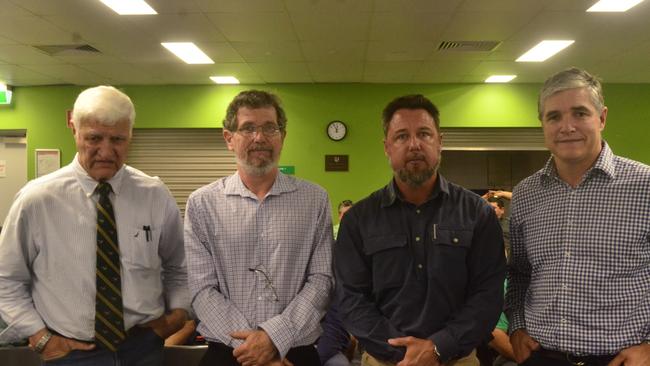
Dr Ridd said the regulations at the moment will have absolutely no effect on anything significant on the Reef because the pesticides are not getting out to the Reef.
“When it comes to fertiliser, work from AIMS (Australian Institute of Marine science) itself demonstrates that the cycling of nutrients across the seabed is the most important thing.
“Also work on half a dozen papers has demonstrated that the rivers are relatively minor when it comes to water quality of the Reef.
“The biggest ‘rivers’ that affect the Great Barrier Reef are the great ocean currents,” he said.
Katter Australian Party Member for Hitchinbrook, Nick Dametto was also in attendance and said people in Brisbane have no idea about framing practices, and were “trying to win over people with a green tinge”.
“The reason we put this legislation together was because after talking to scientists we realised we aren’t hurting the reef, some people out there need to understand that,” Mr Dametto said.
“The legislation that went through in 2019 was built on a flawed science, and that is why we seek to appeal it.
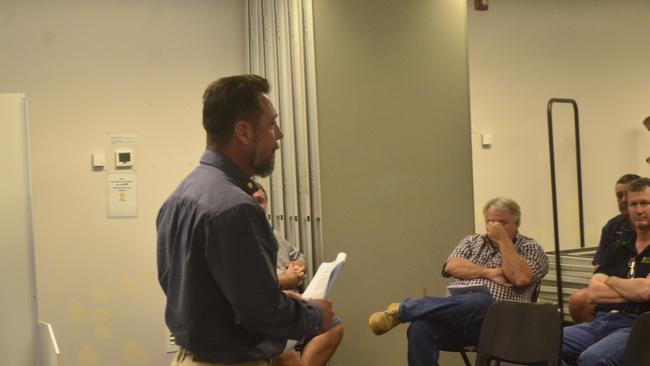
“The reason I moved this legislation is because everyone in this room needs to have their voice heard again. We didn’t know what the regulations were going to look like when the legislation went through.
“A lot of the stuff that you’re dealing with right now with your nitrogen and phosphorus budgets, that’s all of the regulation and we didn’t have any of that prescribed to us in the legislation.
“Now that we know what we are dealing with, we should have our voice heard again. There is a multimillion-dollar industry that is being affected right now.
“Everybody should be concerned, because any drop in production locally from these regulations and legislations can have an effect on the local economy,” he said.

Will the Bill pass?
Local farmers in attendance were concerned with the legislation put forward by the KAP, with one local farmer saying the legislation had no form of success.
“What we need is something that is going to be concrete and give us a result at the end.
“With the productivity declines that we have experienced. we’re going to have to start questioning should we be growing another sugar cane or should we be growing another crop that isn’t being scrutinised.
“These sugar growing areas support the larger regional communities such as Townsville, Mackay and Bundaberg, so really, I do have a concern about our future,” he said.
A common question asked by farmers was simply, “what is the science saying about the impacts farming practices are having on the Great Barrier Reef in the Burdekin”?

“We got to push the Yongola. If the farmers are killing the reef, why is this in such pristine condition? That is what you got to push to get people to change their mind on the mindset that we are killing the reef,” one farmer said.
Another farmer was concerned about the perception being imposed on young Australians that farmers are killing the reef.
“It’s hard to change perception, we can’t even get it in the school here.
“Our kids come home telling us we are killing the reef in our own local areas … it’s hard and how do we get people to change those perceptions?” he said.
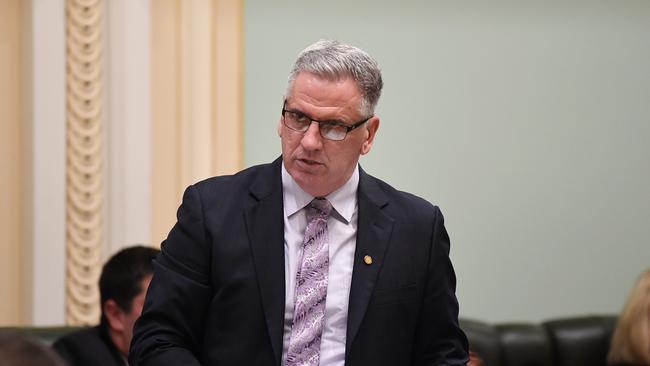
Member for Burdekin Dale Last was not present and said it was incredibly disappointing that the KAP were peddling false hope to farmers.
“The reality is, it is highly unlikely that the Bill they have before parliament to repeal the Reef Regulations will ever be debated,” Mr Last said.
“As we said and predicted in 2019, these regulations are having a devastating impact on our farmers and for some it is becoming unviable to farm.
“The Labor government had the chance to work with primary producers, to identify and implement practical solutions and to achieve a good outcome for the reef but, instead, they have taken the big stick to agriculture and in particular our cane farmers,” he said.
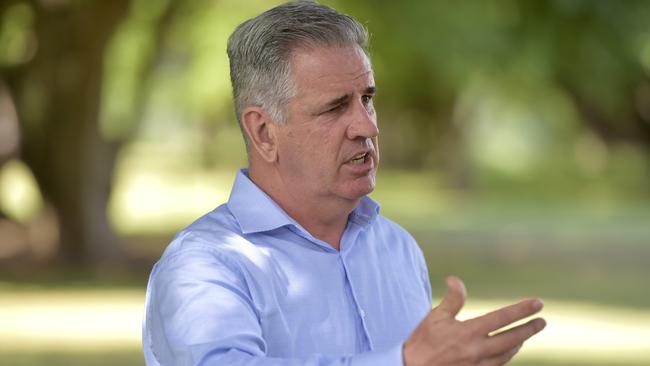
Mr Last said the KAP’s amendment Bill was another kick in the guts for hardworking farmers who are wanting real action on these reef regulations that the KAP can’t provide.
“Quite simply, at a time when farmers need support from their leaders they are being led up the garden path by a party more interested in chasing a headline than finding a workable solution,” he said.
What does the science say?
A spokesman from the Department of Environment and science said The Queensland Government is taking strong action to ensure future generations can experience the World Heritage-listed Great Barrier Reef.
“Rising ocean temperatures due to climate change, along with nutrient and sediment run-off from agriculture are the main risks to the future of the Great Barrier Reef,” the spokesman said.

“The Queensland Government’s plans to protect the Reef are based on the best available scientific evidence.
“The independent Scientific Consensus Statement, jointly funded by the Queensland and Commonwealth governments, is a foundational document that informs plans for managing impacts of water quality on the Great Barrier Reef ecosystems.
“For the 2017 Scientific Consensus Statement, over 1,600 peer reviewed published scientific papers and reports, including monitoring and field data, were synthesised by a multidisciplinary group of 48 scientists. These statements are updated every five years, with the next one due in 2022.
“The key conclusions were that poor marine water quality associated with run-off from the adjacent catchments is a major cause of the current poor state of many of the coastal and inshore marine ecosystems of the Great Barrier Reef.
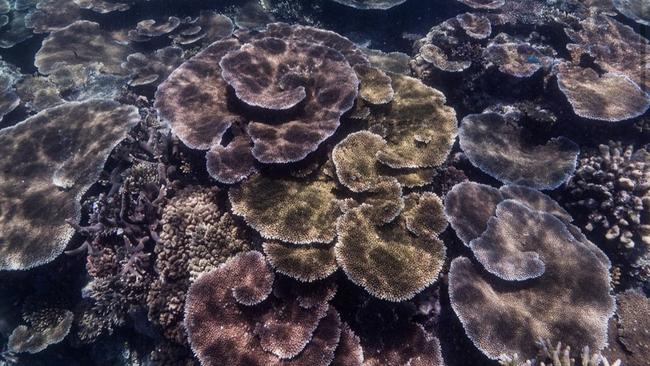
“The main source of the primary pollutants — nutrients, fine sediments and pesticides — from Reef catchments is diffuse source pollution from agriculture.
“The Great Barrier Reef Water science Task force recommended a regulated approach was needed to improve Reef water quality to address the poor condition of inshore Reefs and coastal ecosystems.
“The Regulations were passed by parliament in 2019 after a three-year consultation process, which included three separate full public consultation rounds, including a regulatory impact statement, and extensive ongoing targeted consultation with industry bodies.
“These laws are about ensuring everyone meets minimum standards, which are based on industry’s own standards.
“As part of the 2020 state election, the Queensland Government committed to maintaining the current Reef protection regulations. A Statutory review of the regulations is due to be commenced at the end of 2022.
“The Department of Environment and science reef regulations compliance strategy aims to increase the adoption of improved farm practices to accelerate reef water quality improvements,” he said.
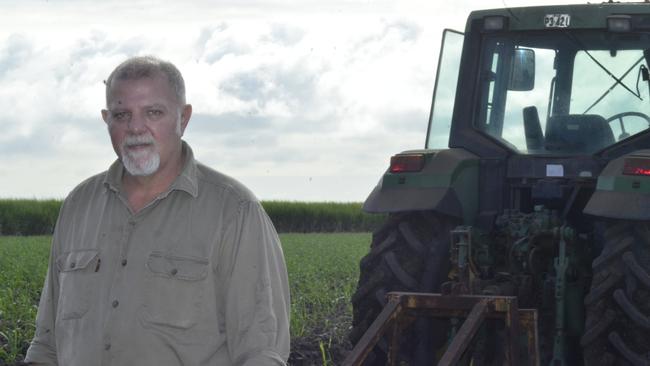
Many farmers were also concerned about the high range of fines that can be issued to them as a result of non compliance.
The spokesman for the DES said they take an education-first approach to noncompliance.
“This method of encouraging voluntary compliance has resulted in significant changes to farming practices. Follow-up visits with canegrowers show that most have made voluntarily changes,” the spokesman said.
“Where there is continued noncompliance, the Department of Environment and science may escalate its compliance response in accordance with its Enforcement Guidelines.
“The water quality benefits of regulations are measured through the Paddock to Reef program and reported through the Reef Water Quality Report Card. Compliance with the regulations contributed to the best ever annual progress towards the target for dissolved inorganic nitrogen in the 2019 Report Card, with a 4.3 per cent reduction across the catchment,” he said.
• Department of Environmental science audits Burdekin farmers after reef regulations
• Council throws support behind ‘Reef Regulation Reversal Bill’
• Nick Dametto says sugar industry under threat from Labor Reef regulations
Originally published as Burdekin farmers gather at forum to discuss impacts of Great Barrier Reef Regulations



